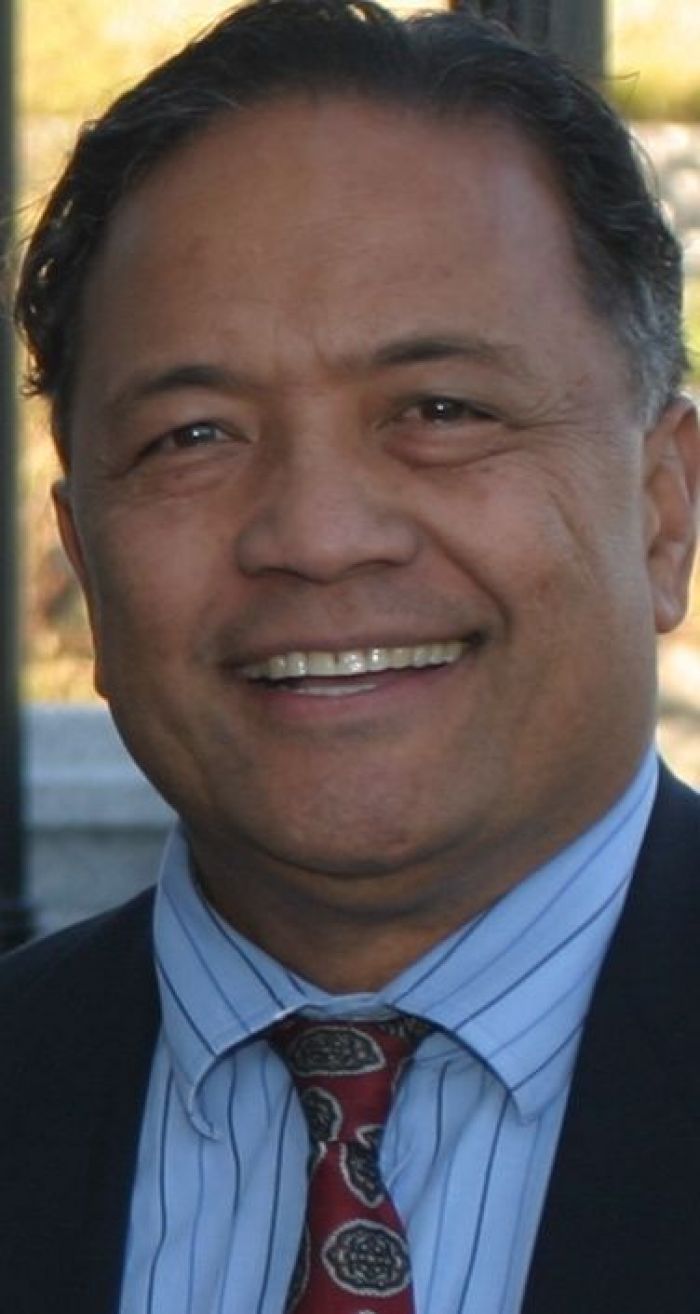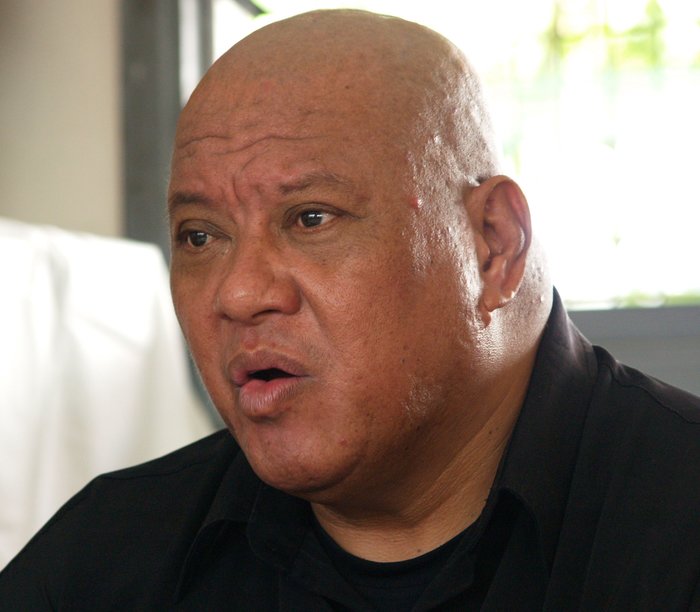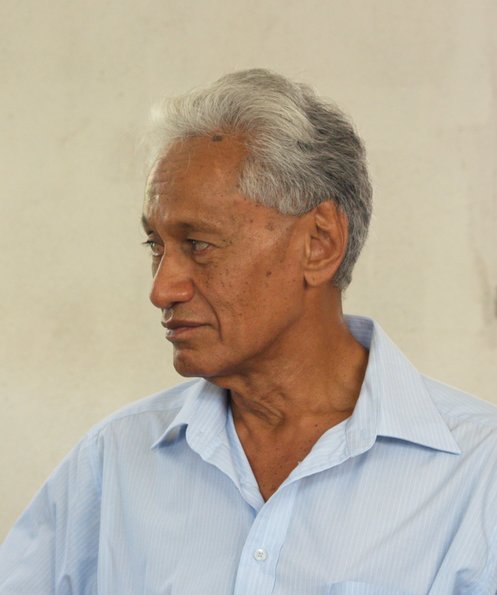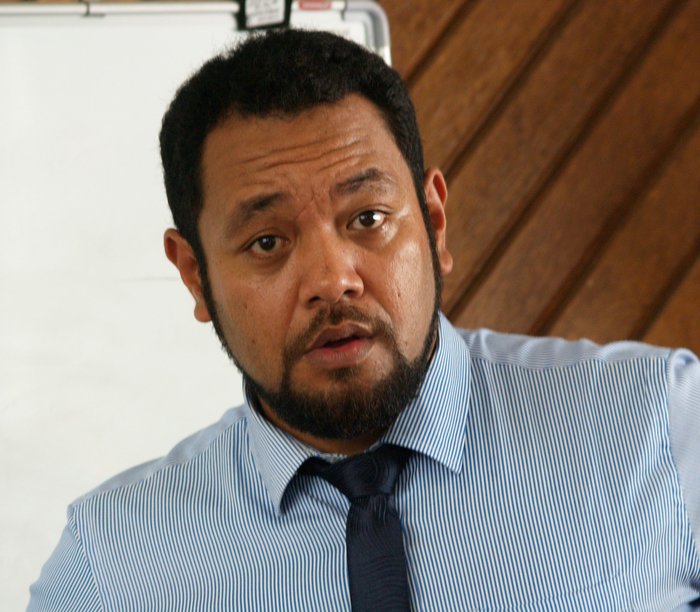Lord Vaea Correctly Calls Tongan Journalists “Lazy” Featured
 Mr. Sione A. Mokofisi
Mr. Sione A. Mokofisi
"Nuku'alofa Street Journal"
Ko e Totofa ‘o Nuku‘alofa…Voliume 2. Fika 5…Ma‘asi 27, 2015
Written by Sione A. Mokofisi
NUKU‘ALOFA, TONGA: Lord Vaea – a sitting Member of Parliament (MP), and an experienced certified court translator – gave an honest analytical observation of the quality of journalistic work we are doing in the local media in Tonga.
He classified local media members as “young” and “lazy” journalists. And I couldn’t have agreed more with the MP. Lord Vaea’s opening remarks were given at a Tonga Media Council seminar at the Education Technical Institute at Pahu; a sponsored event by the Canadian High Commission’s Pacific Office, last Thursday.
That has been my personal opinion as well for years, in reading Tongan newspapers published in the Tongan language. The Tongan media does need a wakeup call: (a) to critique the quality of their journalism work; (b) to serve the public in providing correct; (c) unbiased, and (d) fair news reporting.
Lord Vaea’s speech was titled “The New Political Context.” How does the media role impact our fledgling democracy? Fittingly, Lord Vaea identified “our language” as the foundation of the democracy. Poor quality of writing – and I might add, the lackluster quality of statesmanship by politicians − is a threat to our language, therefore posing a threat to our democracy upon which it is based.

Lord Vaea defends Tongan language against "lazy" journalists who prefer Tonganizing English words rather than using proper translations. (SAMokofisi photos).
Attacks in the Local Media; Lack of Political Statesmanship
Lord Vaea shares my disappointment with local Tongan writers in the “lack of good record-keeping, referencing archives, documents and published manuscripts,” he said. He was referring, of course, to the lack of referencing historical facts and events in the context of modern writing.
I share the same concern. Most young journalists seem to be dwelling in the exciting modern era of the information technology (IT), preferring to Tonganize English words to be cute and seem “educated.” They seem too lazy to get up from their comfortable computer-keyboards to search for the correct Tongan translations from English.
I’ve visited with several local journalists and I was surprised to witness a basic deficiency in their journalism work habits; they don’t even have at the least, a copy of the Dr. C. Maxwell Churchward’s “Tongan-English Dictionary,” and the “Tongan Grammar” (1959) texts.
These are essential “tools of the trade” for journalists who must write in Tongan. These texts are my most valuable references as a Tongan writer − unfortunately, my copies have been stolen since I arrived in Tonga. But complacency among Tongan writers in local newspapers, Tongan speech in public broadcasting, as well as in public speaking by politicians are riddled with Tonganized English words and phrases.
Meanwhile, we do have Tongan translations available. May the real “Tongan Statesman” stand please, and give us a real Tongan oratory?

Editor Pesi Fonua of Matangi Tonga Online asked why did the New Zealand Government "spy" on Tongan security information thus providing to U.S. Intelligence? (SAMokofisi photos).
Politicians Are Lazy Bums
Example 1: Prime Minister Pōhiva often uses the word “molale,” among many others. “Molale” is a Tonganized version of “moral,” or “morality.” We have at least fours definitions in the Churchward dictionary: “angama‘a,” “anga-totonu,” “angatonu,” and “faitotonu,” etc.
Why doesn’t he lookup the translation himself? Or have one of his bright advisors who are paid the big money look it up? I do think they prefer to speak in English rather than in Tongan. This is a form of non-transparency sophism; the privilege of the educated and the rich.
Example 2: In a recent radio interview, one of the ministers kept repeating the word “procurement.” I don’t even know the term myself; and let alone the poor folks in the villages, who may have had less education. The well-paid minister ought to look up the correct Tongan translation before going on the interview.
We pay him lots of money as a minister, and it is his responsibility to give us information in an easy-to-understand manner. This is another form of a non-transparency government, by reminding us how ignorant we the people are.
Example 3: A radio announcer explained that the ocean has returned to “nōmolo” after the “red-sea” scare in January. She kept repeating herself to say the ocean is “nōmolo.” This is a typical of young local broadcasters; they are too lazy to look up the Churchward’s Tongan translation of “normal,” which is “totonu,” “anga-totonu,” and I can add “anga-maheni,” etc.

Chris Desroches of the Canadian Pacific Commissioner sponsored the Tonga Media Seminar last Thursday. (SAMokofisi photos).
Poor Writing Quality in the Tongan Language
I do also concur with Lord Vaea’s assessment that journalists’ preference is to write and broadcast in English rather than in Tongan. It is fashionable anymore to be able to talk in English, and use as many English words in a Tongan conversation as possible.
Broadcast advertisers are notorious habitual “Pidgin-Tongan/English” violators. They remind me of Pidgin-Hawaiian/English users before the “Hawaiian Cultural Renaissance” of the early 1970s. It was so bad that Pidgin-English speakers were the only ones who understood their dialect. And now, the English is the official and preferred language of Hawai‘i.
I must agree with Lord Vaea: The quality of writing in the Tongan language has deteriorated. No where this is more evident than in the Tongan-language newspapers: (a) writers have poor writing-composition skills; (b) they are borrowing too many English-Tonganized words and phrases; (c) and they do not follow fundamental journalism practices and ethical protocols.

Tevita Motulalo hosts the Tonga Media Seminar last week at the Tonga Education Institute, Pahu. (SAMokofisi photos).
In my professional judgment, Tongan-language writers are not well-trained in writing composition: (a) there is no “straight” news reporting in print journalism; (b) most do write “straight” news stories as opinion-editorial (op-ed) pieces; (c) most do write long paragraphs on various subjects without using punctuation marks; (d) they do not know how to capitalize proper nouns; (e) and misspelling of Tongan words is rampant, a result of bad proof-reading by editors.
(Ko e taukei fa‘utohi ‘a Sione A. Mokofisi ‘i he mītia ‘Ameliká mo Tongá ‘i he lea Tongá mo e Ingilisí. Kuo ma‘u MBA pea ko e Talēkita English, Journalism & Languages ‘i he Tonga International Academy, Haveluloto, Tongatapu, Tonga. Tu‘asila fetu‘utaki E-mail: This email address is being protected from spambots. You need JavaScript enabled to view it.).
2 comments
-

Ko e ha 'oku fufuu ai ho hingoa? 'Alu 'o fa'u ha'o fa'utohi ka e tuku ho'o namu holo he fa'utohi 'a e kakai. 'Oku 'osi 'i ai 'etau lea Tonga, ko e ha 'oku 'omi ai 'a e lea Pilitania 'o fetongi 'etau lea?
-

Kuopau pe ke tuifio etau Lea moe Lea flpapalangi koe mea mahuinga pe ke mahino e fkuhinga. Ngaue lahi aki ehe Laa kuo Unga Fonua, Kuini Salote iheene ngaahi maaimoa as Lea fkpapalangi hange koe poulivaati, leiola mine, fauniteni etc....mea mahuinga pe ke mahino e poini oku taukavei e....



